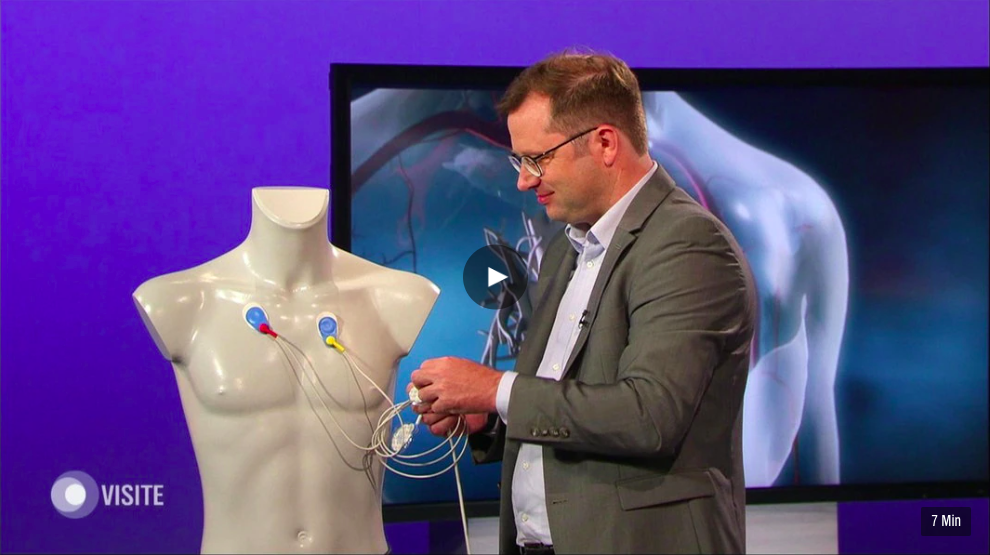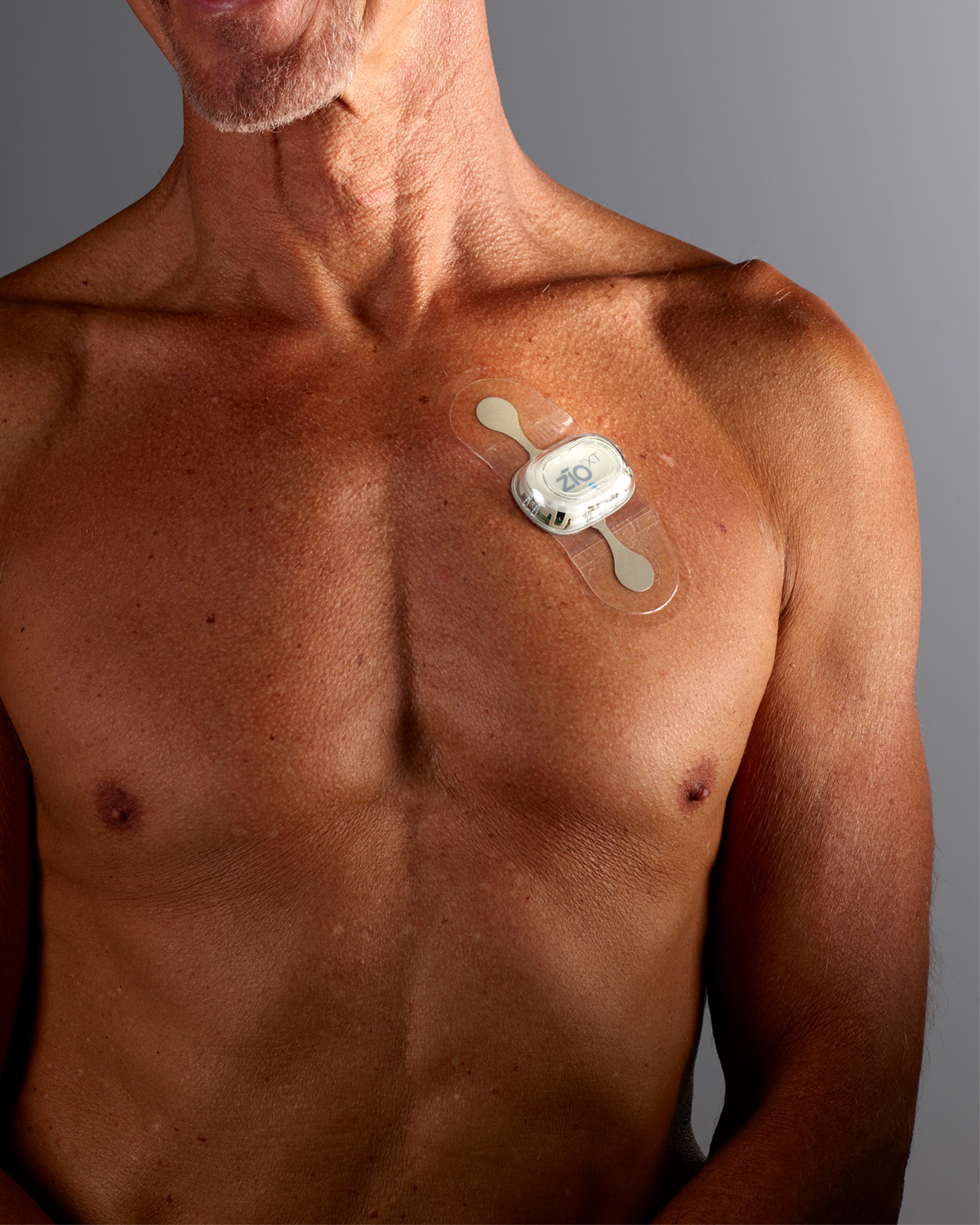SCREEN AF-DZHK15
Study information
SCREEN AF-DZHK15
- Recruiting status
-
Recruiting complete, follow-up continuing
- Recruitment start
12/2017
- Patients
267
- Clinical Trials Registration
- Category
Guideline relevant study
- DZHK Funding
EUR 554.819,62
Operative contact
Main study centre
Nele von der Heyde
n.vonderheyde@med.uni-goettingen.de
Home-Based Screening for Early Detection of Atrial Fibrillation in Primary Care Patients Aged 75 Years and Older (SCREEN AF-DZHK15)
The SCREEN-AF study aims to improve the early detection of atrial fibrillation using a new “rhythm patch” with an integrated ECG recording unit which is applied to the patient’s chest. This patch has a mini monitor as a recording unit which can record the heart rhythm for up to two weeks. In comparison to conventional Holter ECGs, this recording method is less cumbersome for the study participants and they can, for example, even shower without having to remove the patch. In addition, the study participants take their blood pressure twice a day with a blood pressure monitor suitable for home use. The study examines whether early atrial fibrillation can be detected with the help of two 2-week continuous ECG recordings.
Besides investigating how often atrial fibrillation is detected, the study investigators also want to ascertain how often and how long they need to measure in order to capture all cases. For this reason, the 14-day ECG recordings and blood pressure measurements are repeated after three months, and after six months the general practitioner examines the heart of the patients.
The study is directed towards patients aged 75 or older who have high blood pressure, but so far have shown no indication of an arrhythmia. The study team cooperates closely with a network of general practitioners with whose help patients are recruited.
Atrial fibrillation is responsible for a quarter of all strokes, and yet the risk of patients with atrial fibrillation having a stroke can be reduced by 70 percent if they take anticoagulants early enough. The problem is an early diagnosis because often the heart only beats irregularly in paroxysmal episodes, which does not cause any discomfort.
Except for the management of risk factors such as obesity, high blood lipid levels or high blood pressure, there is currently no standard stroke prevention program involving screening for atrial fibrillation. The SCREEN-AF study is a first step in developing such a program for primary stroke prevention. It is being conducted in cooperation with the Canadian Stroke Prevention Intervention Network (C-SPIN), who together with the DZHK is funding the study.

Publications
Protocol for a Systematic Review and Individual Participant Data Meta-Analysis of Randomized Trials of Screening for Atrial Fibrillation to Prevent Stroke. Bangdiwala, Sq, Wachter R. et al. Thromb Haemost. 2023 Mar;123(3):366-376. doi: 10.1055/s-0042-1760257. Epub 2023 Mar 2.
Screening for Atrial Fibrillation in the Older Population A Randomized Clinical Trial. Gladstone, DJ. et al. JAMA Cardiology 2021, doi: 10.1001/jamacardio.2021.0038
All publications of this trial can be found here
Principal Investigators
Principal investigator for Germany: Rolf Wachter (Göttingen und Leipzig), Co-PI: Eva Hummers (Göttingen), Jeff Healey, David Gladstone (Canadian Stroke Prevention Intervention Network, Kanada)
Press releases and news

What to do when the heart stumbles?
In a television report on the NDR health programme Visite, Prof. Dr Rolf Wachter from Göttingen...

Wearable heart monitor effective for early detection of atrial fibrillation (Study SCREEN-AF-DZHK15)
A small, wearable heart monitor can detect atrial fibrillation in high-risk patients ten times more...

DZHK Study: Recognising atrial fibrillation earlier and reducing strokes
A new clinical study on the early detection of atrial fibrillation at home is starting at the German...
Study recruitment is available in these cities
The map only displays recruitment locations within Germany.
